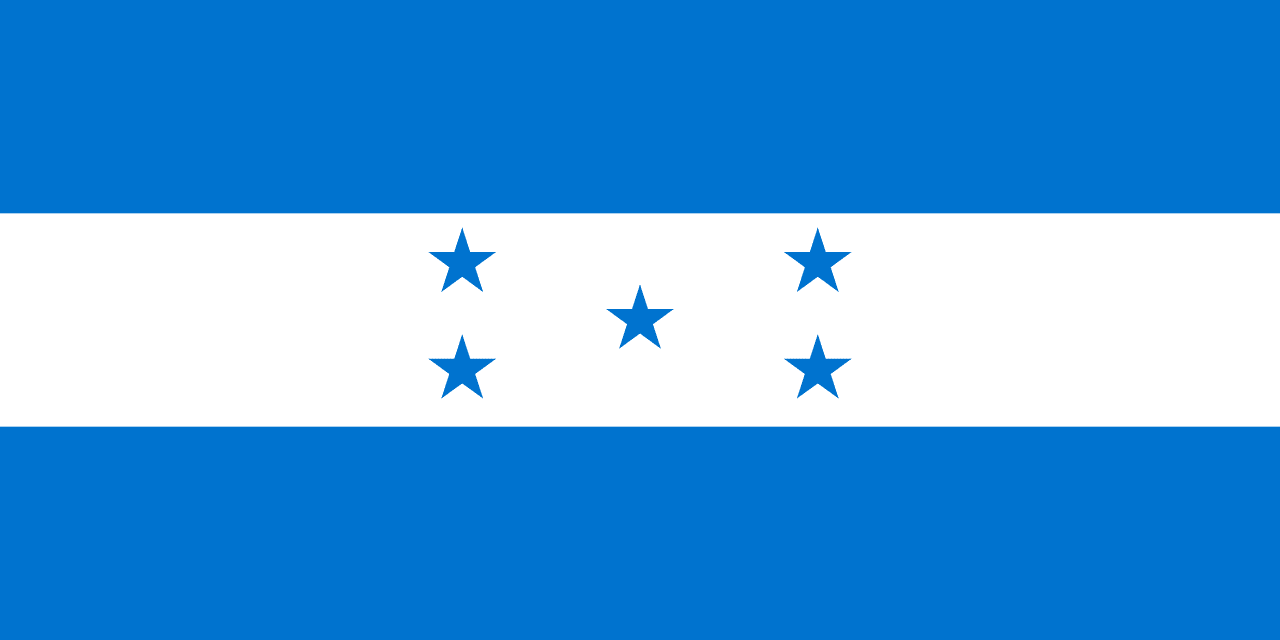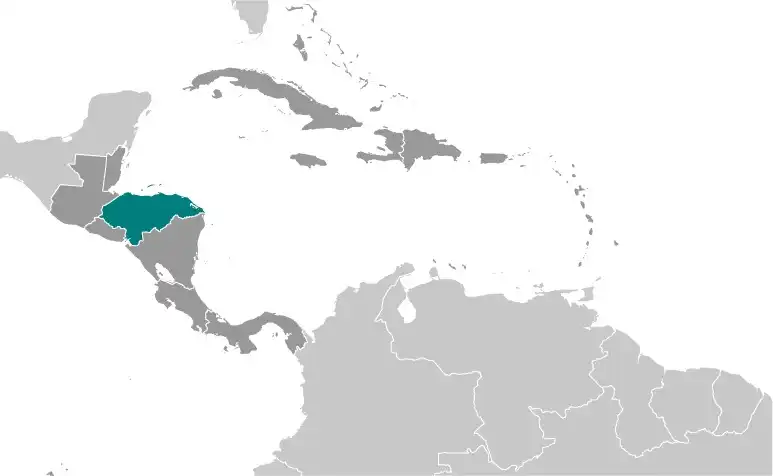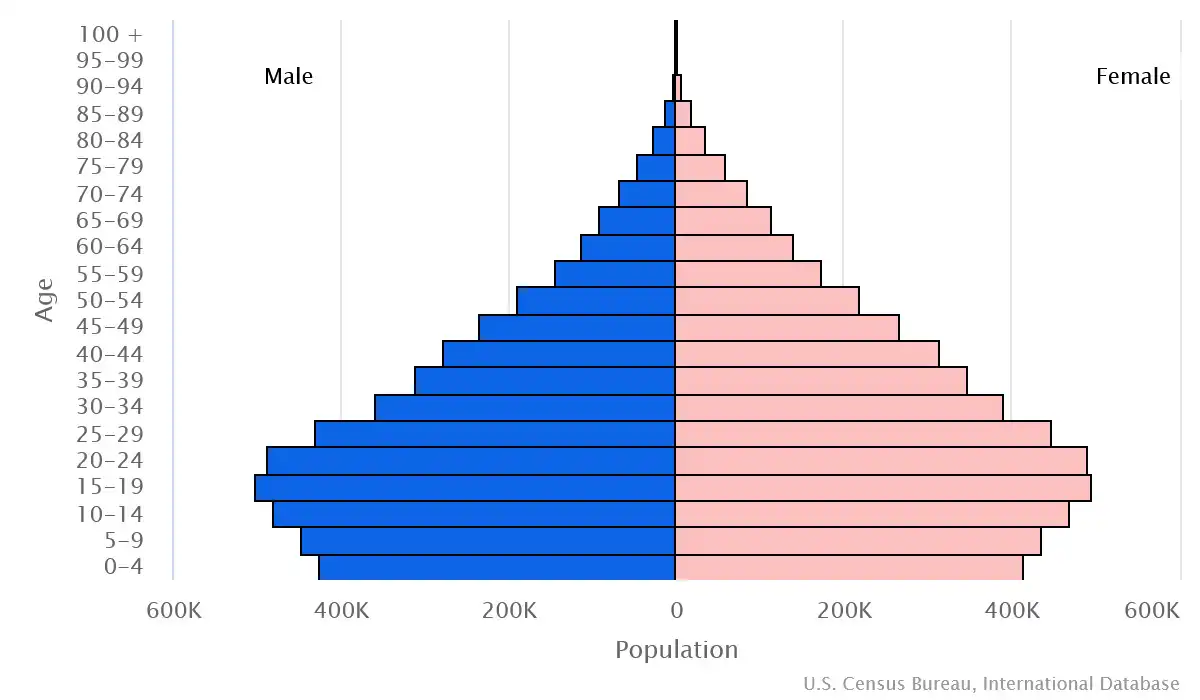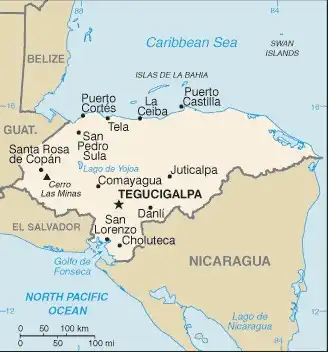
Honduras Country Profile
Key Facts of Honduras

| Government type: | presidential republic |
| Capital: | Tegucigalpa; note - article eight of the Honduran constitution states that the twin cities of Tegucigalpa and Comayaguela, jointly, constitute the capital of the Republic of Honduras; however, virtually all governmental institutions are on the Tegucigalpa side, which in practical terms makes Tegucigalpa the capital |
| Languages: | Spanish (official), Amerindian dialects |
Honduras Demographic Data
Ethnic Groups in Honduras(mixed Indigenous and European)
Religious Groups in Honduras (2023 est.)
Age pyramid of Honduras

Honduras Economy Statistics
Economic overview of Honduras
second-fastest-growing Central American economy; COVID-19 and two hurricanes crippled activity; high poverty and inequality; declining-but-still-high violent crime disruption; systemic corruption; coffee and banana exporter; enormous remittances
Honduras Real GDP (purchasing power parity) in Billion $
Honduras Real GDP per capita in $
Honduras's Exports & Imports in billion $
Top 5 Import Partnerin 2022 (78%) of Honduras
Top 5 Import Commodities in 2022 of Honduras
- refined petroleum ⛽
- cotton yarn 🧵
- garments 👕
- synthetic fibers 🧵
- plastic products ♻️
Top 5 Export Partnerin 2022 (76%) of Honduras
Top 5 Export Commodities in 2022 of Honduras
- garments 👕
- coffee ☕
- insulated wire 🔌
- palm oil 🛢️
- bananas 🍌
Geography of Honduras
Map of Honduras

Land and Water Distrubtion of Honduras
Natural Resources of Honduras
- timber 🌲
- gold 💰
- silver 🪙
- copper 🟧🪙
- lead 🪙
- zinc 🔩
- iron ore ⛓️
- antimony 🏺
- coal ⚫
- fish 🐟
- hydropower 💧⚡
Climate inHonduras
subtropical in lowlands, temperate in mountains
History of Honduras - a Summary
Once part of Spain's vast empire in the New World, Honduras became an independent nation in 1821. After two and a half decades of mostly military rule, a freely elected civilian government came to power in 1982. During the 1980s, Honduras proved a haven for anti-Sandinista contras fighting the Marxist Nicaraguan Government and an ally to Salvadoran Government forces fighting leftist guerrillas. Hurricane Mitch devastated the country in 1998, killing about 5,600 people and causing approximately $2 billion in damage. Since then, the economy has slowly rebounded, despite COVID-19 and severe storm-related setbacks in 2020 and 2021.
